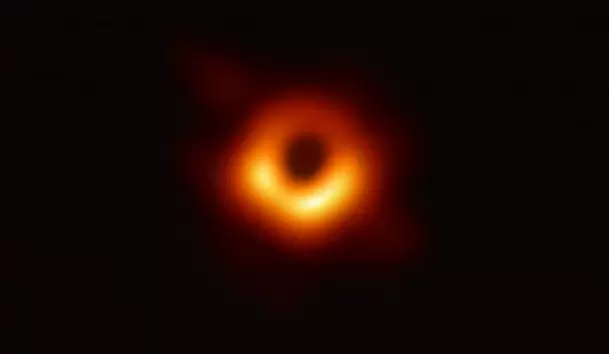Physicists accidentally discover black holes exert pressure
13-September-2021

Physicists have for the first time discovered that black holes exert a pressure on their environment.
In 1974 Stephen Hawking made the seminal discovery that black holes emit thermal radiation. Previous to that, black holes were believed to be inert, the final stages of a dying heavy star.
The University of Sussex scientists have shown that black holes are, in fact, even more complex thermodynamic systems, with not only a temperature but also a pressure. The discovery is published in the journal Physical Review D.
The team, led by Professor Xavier Calmet and Folkert Kuipers in the Department of Physics and Astronomy at the varsity, were perplexed by an extra figure that was presenting in equations that they were running on quantum gravitational corrections to the entropy of a black hole. They later realised that it is behaving as a pressure.
Following further calculations, they confirmed their exciting finding that quantum gravity can lead to a pressure in black holes.
According to Calmet, Professor of Physics at the varsity, Hawking's landmark intuition that black holes are not black but have a radiation spectrum that is very similar to that of a black body makes black holes an ideal laboratory to investigate the interplay between quantum mechanics, gravity, and thermodynamics.
"If you consider black holes within only general relativity, one can show that they have a singularity in their centres where the laws of physics as we know them must break down. It is hoped that when quantum field theory is incorporated into general relativity, we might be able to find a new description of black holes.
"Our work is a step in this direction, and although the pressure exerted by the black hole that we were studying is tiny, the fact that it is present opens up multiple new possibilities, spanning the study of astrophysics, particle physics and quantum physics," Calmet said - IANS
Khushbu Sundar’s X Account Hacked; Actress Seeks Urgent Help
ED Raids Bengaluru Dog Breeder Who Claimed to Own Rs 50 Crore Wolf-Dog
Raj Thackeray Slams Hindi Imposition in Maharashtra Schools, Warns of Statewide Protests
That Sassy Thing Raises ₹6 Crore to Disrupt Women’s Sexual Wellness Space
Suspended Kerala IAS Officer Prasanth Raises Promotion Demand During Hearing








